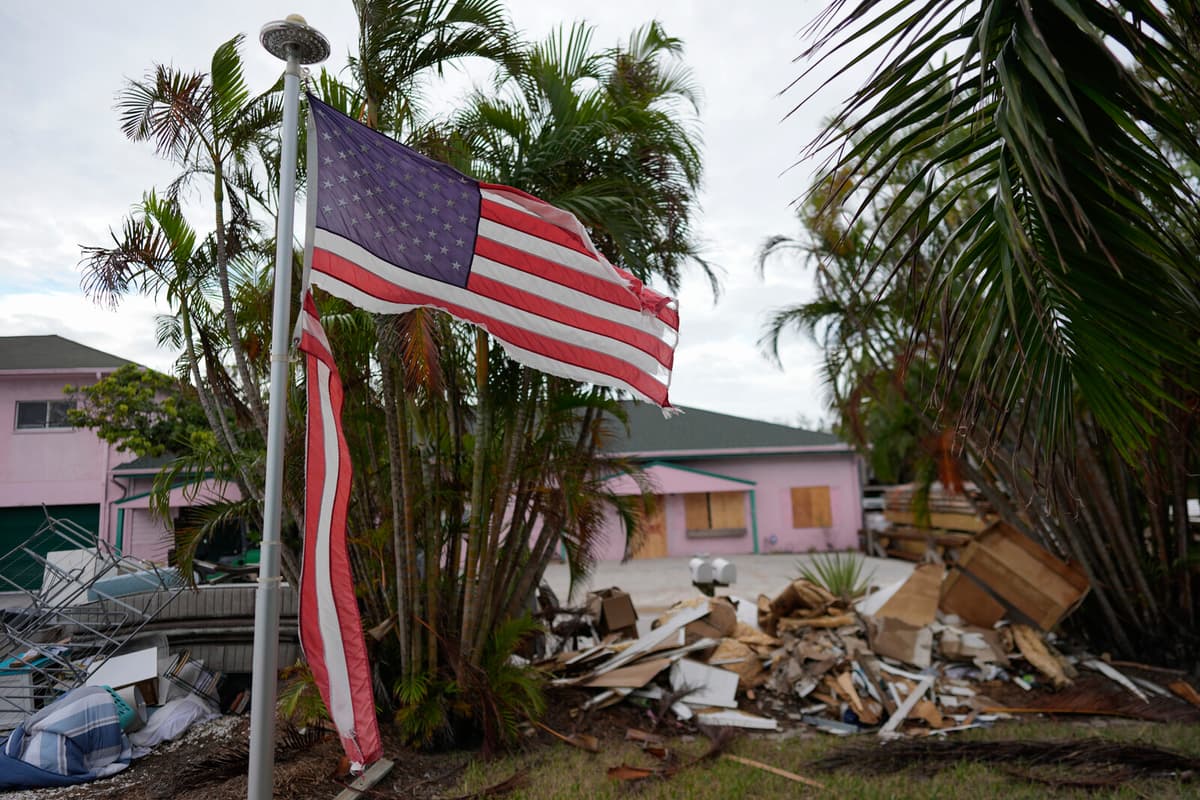During Trump's previous term, it took a while before the decision to withdraw from the Paris Agreement was made. It takes a year to withdraw from the agreement.
Since he waited so long, the US didn't leave until just before Trump left office. This time, the US is out in a year, which operationally means a significant difference, says Katherine Browne, who researches global governance in climate policy, among other things.
The fact that the US is leaving international cooperation can make other countries withdraw, she fears.
It becomes harder for other countries to convince their populations to act on climate change, as they will point to the US and say "they're doing nothing".
Hunt for Oil and Gas
When it comes to emissions, it's more unclear what will happen. The US is the world's second-largest emitter, but a green transition is underway in several places. Part of former President Joe Biden's climate policy, the giant package IRA, has included investments of $300 billion in renewable energy.
I think Trump can try to withdraw parts or all of IRA. But it's cleverly designed, where many Republican states and districts have benefited. So, there are incentives for Republicans to keep the law, says Katherine Browne.
At the same time, Trump has the ambition to ease regulations on oil and gas production.
Emissions from production itself will increase, and then, of course, consumption, regardless of whether it happens in the US or in countries that import American fossil fuels. It doesn't bode well for the American emission curve, says Browne.
Lack of Credibility
There have been fears from climate advocates that the US will also leave the UNFCCC, the UN convention that came into force in 1994, and which, among other things, organizes the annual climate meetings. But leaving the UNFCCC is much more complicated.
Trump has made his mark to his supporters. I don't think he wants to get into a legal battle over something like UNFCCC when it's so easy to leave the Paris Agreement by decree. It's possible that he'll try, but I don't think it's high-priority, says Browne.
As long as the US stays in the convention, the country can participate in climate meetings.
But even if they're technically present and have a seat at the table, the US's voice is weakened by its stance and lack of credibility, says Browne.
The Paris Agreement is an international agreement on climate change, adopted by 196 countries at the climate meeting COP21 in Paris in 2015.
The goal is to keep the global temperature increase, mainly caused by human burning of fossil fuels, well below 2.0 degrees, preferably 1.5 degrees, by the end of the century. Emissions would need to peak this year and then drastically decrease by 43 percent by 2030, for the 1.5-degree goal to be possible.
Every five years, countries should submit an updated plan (NDC) on how they will reduce emissions. Each plan should be more ambitious than the previous one, and the first was submitted in 2020.
The Paris Agreement also includes a framework for rich countries to support poor countries economically in their transition.
Source: UNFCCC






